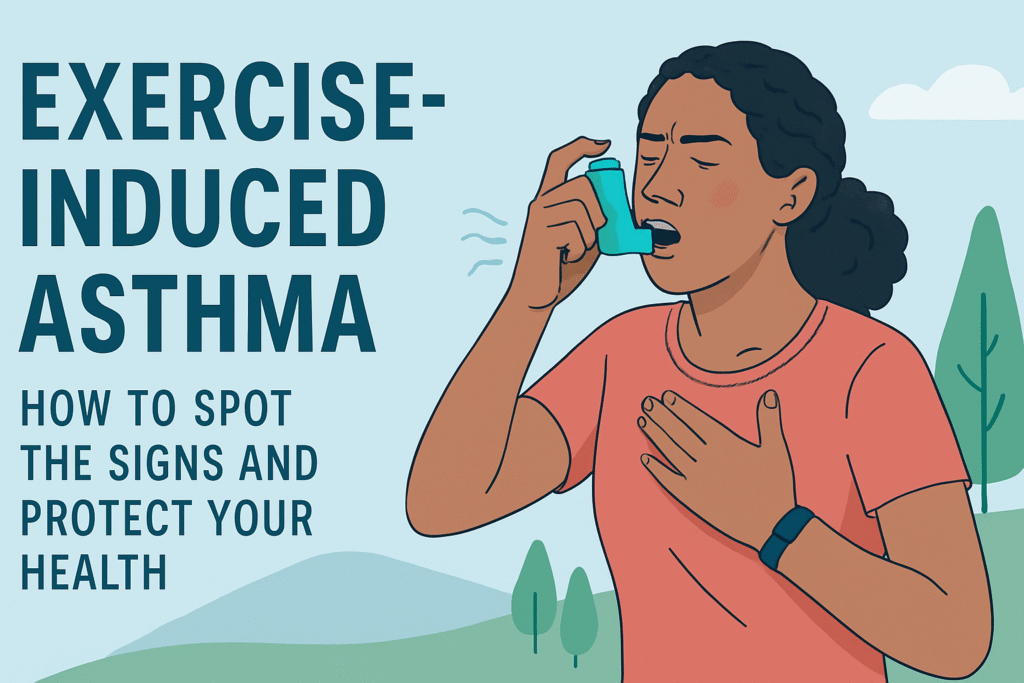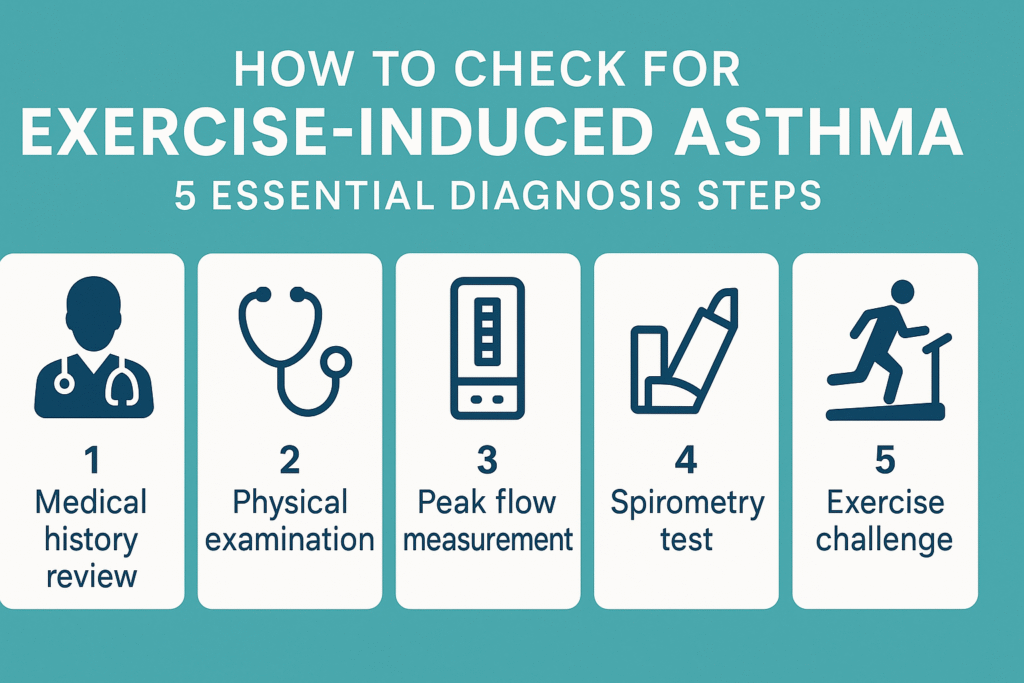
What Is Active Asthma?
Active asthma means your airways are currently inflamed and reactive, causing symptoms like wheezing, coughing, or breathlessness. Unlike occasional flare-ups, active asthma involves persistent or frequent symptoms that disrupt daily life. Here’s how to identify it.
(Focus keyphrase in introduction, simple definition.)
5 Signs You Might Have Active Asthma

- Recurrent Wheezing
- A high-pitched whistling sound when breathing out, especially at night or during exercise.
- Not caused by colds or temporary infections.
- Chronic Coughing
- A dry, persistent cough that worsens at night, in cold air, or after exposure to allergens (e.g., pollen, dust).
- Chest Tightness
- Feels like a heavy weight on your chest or difficulty taking deep breaths.
- Shortness of Breath During Daily Activities
- Struggling to breathe while walking, climbing stairs, or doing light chores.
- Symptoms That Improve with Asthma Medication
- Quick relief after using a rescue inhaler (e.g., albuterol) supports an asthma diagnosis.
How Doctors Diagnose Active Asthma
1. Spirometry Test
- Measures how much air you can exhale forcefully. Low results indicate narrowed airways.
- Gold standard for asthma diagnosis.
2. Peak Flow Monitoring
- Track peak airflow at home with a handheld device. Significant variability (morning vs. evening) suggests active asthma.
3. FeNO Test
- Detects nitric oxide in your breath—high levels signal airway inflammation.
4. Bronchial Challenge Test
- Inhale a substance (e.g., methacholine) to see if your airways narrow abnormally.
5. Symptom Diary Review
- Doctors analyze patterns (e.g., nighttime coughing, exercise-triggered wheezing).
Red Flags: When to See a Doctor Immediately

- Symptoms worsen despite using a rescue inhaler.
- Blue lips or fingernails (sign of oxygen deprivation).
- Rapid breathing or inability to speak full sentences.
- No relief after 48 hours of over-the-counter treatments.
Active Asthma vs. Inactive Asthma: Key Differences
| Active Asthma | Inactive Asthma |
|---|---|
| Daily symptoms | Rare or no symptoms |
| Frequent rescue inhaler use | Inhaler used ≤2x/week |
| Disrupted sleep/work | Minimal life impact |
| Peak flow readings vary ≥20% | Stable peak flow |
What Triggers Active Asthma?
- Allergens: Pollen, pet dander, mold.
- Irritants: Smoke, pollution, strong odors.
- Weather: Cold air, humidity, thunderstorms.
- Exercise: Especially in dry, cold environments.
- Stress: Emotional anxiety tightens airways.
(Subheadings include semantic keywords like “triggers,” “diagnose.”)
Case Study: Managing Active Asthma
Mark, 34, ignored his nighttime coughing until he struggled during soccer games. A spirometry test confirmed active asthma. With a daily corticosteroid inhaler and trigger avoidance, he now plays symptom-free.
FAQs
Q: Can active asthma go away on its own?
A: No—it requires medication and trigger management. Untreated, it may worsen.
Q: Is active asthma the same as an asthma attack?
A: No. Active asthma refers to ongoing inflammation; attacks are sudden, severe symptom flare-ups.
Q: Can allergies mimic active asthma?
A: Yes—allergies can cause similar symptoms. Tests like FeNO help differentiate.

